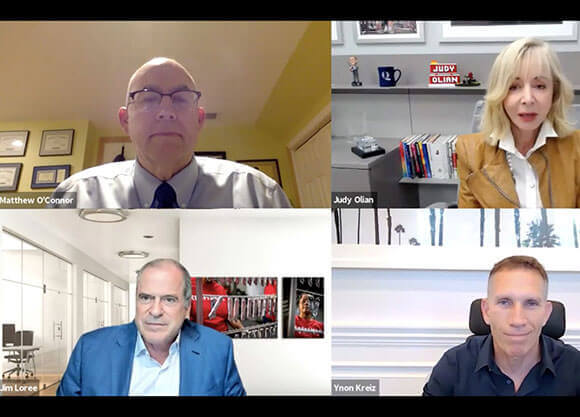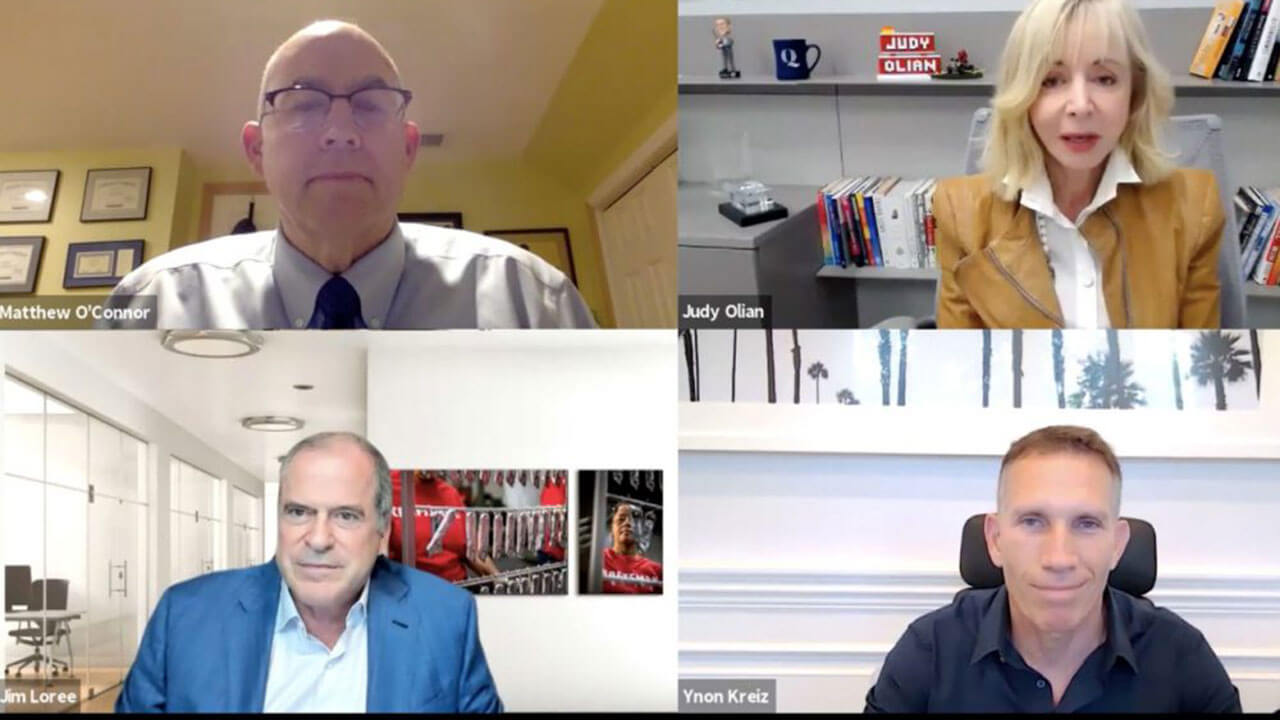
COVID-19’s impact on global supply chains
November 16, 2020

November 16, 2020

COVID-19 has changed many facets of life recently, and the global supply chain is no exemption — no matter how minimal the disruption is.
“There is an incredible amount of complexity at a time when supply chains have been put under great stress and strain,” said Jim Lorre, chairman and CEO of Stanley Black & Decker. “We're very pleased that we've been able to come through this pandemic so far with minimum disruption in the supply chain.”
Stanley Black & Decker has close to 60,000 employees in approximately 60 countries around the world, with approximately half of them in manufacturing and distribution roles.
President Judy Olian and Matthew O'Connor, dean of the School of Business, spoke with Jim Lorre, chairman and CEO of Stanley Black & Decker, and Ynon Kreiz, chairman and CEO of Mattel, on managing corporations during and post COVID-19. This November 12 discussion was part of the university’s presidential speaker series, The Way Forward.
“We probably had more surprises and more volatility this year than any of my 21 years,” said Loree.
Loree said that Stanley Black & Decker was functioning as expected in January and February, but in March, revenue began to dramatically decrease. In April, they were down 40% for four weeks in a row. Suddenly in May, sales began to increase and were 40% higher at the cash register.
"When you delve into that point of sale increase, what was surprising is that when people stay at home, number one, they are looking to repurpose their homes,” explained Loree. “Secondly, are many of them are bored and are looking for projects to do.”
Loree said that wood-working projects went off the charts — an area that historically didn't have very significant sales. Outdoor products also saw an increase because people were spending a lot of their time in their gardens and landscaping, Loree added. But some areas weren't doing as well.
"What weren't doing well were industrial products where a lot of factories shut down, and those tools we provide to industries like automotive and aerospace were not selling," said Loree. "It wasn't a surprise, but it was an extreme dynamic. So, we had one part of the business that was doing really well, and we had another part that was doing not so well, but net things were very positive."
Kreiz had a different experience.
“We're seeing is that the toy industry as a whole is doing very well with kids staying at home,” said Kreiz. “Parents prioritize spending on their children — and toys proving to be a strategic category for retailers.”
Kreiz used Barbie as an example of a brand that is doing exceptionally well during this time. He stated that gross revenues have been up 30% in the quarter and retail sales were up 50%. He explained that the success of the 62-year old brand is a combination of product innovation, design-led approach, cultural relevance and demand creation.
"It's very much a cultural phenomenon. It has societal impact; it's driving diversity, impulsivity and purposeful play," said Kreiz. "It's been a multi-year journey with evolving body shapes, working on ethnicity, storytelling and product innovation. We very much reframe the conversation around Barbie to be very purposeful and this is resonating with consumers."
As for the production of products, Loree said that in the first wave of COVID-19 in China, Stanley Black & Decker only had one case out of 8,000 employees.
“That was incredible to me, but it was a function of the protections that we put in early on,” explained Loree. “Day one, the safety of our employees was the number one focus of the company — and that would enable us to operate continuously. That was the second priority: to operate continuously, and you can’t get one without the other."
Loree added that China’s government tactics contributed as well.
“We took what we learned in China and we applied it everywhere around the world,” said Loree. “And that was one of the reasons we were able to keep the supply chain doing great.”

Quinnipiac Today is your source for what's happening throughout #BobcatNation. Sign up for our weekly email newsletter to be among the first to know about news, events and members of our Bobcat family who are making a positive difference in our world.
Sign Up Now